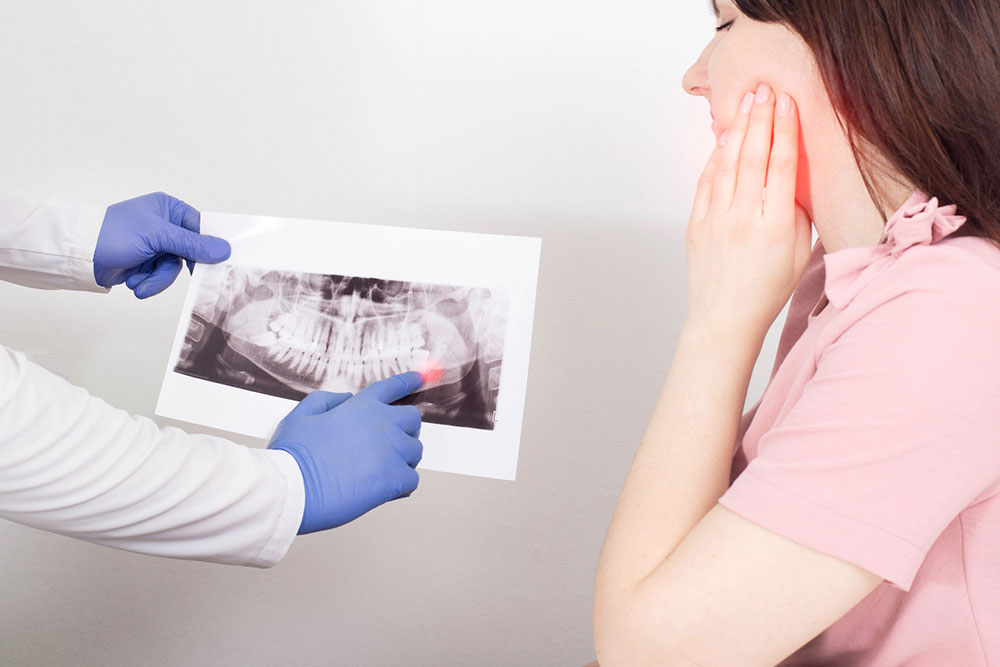6 adverse effects of implants on teeth

Dental implants have revolutionized modern dentistry by providing a viable solution for individuals with missing teeth. They provide several advantages, including better functionality and aesthetics. However, while dental implants are generally considered a safe and effective treatment, they are not without their side effects, especially when not properly cared for or when certain complications arise. Here are some of the adverse effects of dental implants on teeth and the importance of vigilant maintenance.
Peri-implantitis
Peri-implantitis is a common complication associated with dental implants that can negatively impact surrounding teeth. It is similar to periodontitis, a gum disease that can lead to tooth loss. Peri-implantitis occurs when the tissues surrounding the implant become inflamed and infected. This condition can result in bone loss around the implant, ultimately compromising its stability.
The adverse effects of peri-implantitis extend beyond the implant itself, as the infection can spread to nearby natural teeth. This can lead to tooth mobility, increased sensitivity, and eventually tooth loss. Therefore, it is crucial for individuals with dental implants to maintain excellent oral hygiene and undergo regular check-ups to detect peri-implantitis in its early stages.
Implant failure
Implant failure is a significant concern for those who opt for dental implants. While modern implant technology has improved success rates, there are various factors that can contribute to implant failure. One of the most common causes is poor osseointegration, where the implant does not properly fuse with the surrounding bone tissue. This can lead to implant instability and, in some cases, the need for removal. When an implant fails, the effects on adjacent teeth can be detrimental. The pressure and stress exerted on neighboring teeth can result in them shifting or becoming misaligned. In some instances, this may necessitate orthodontic treatment to correct the alignment of teeth, which can be both time-consuming and costly.
Occlusion problems
Dental implants can also impact the occlusion, or the way teeth come together when biting or chewing. If an implant is not precisely positioned or if there is a mismatch in the height of the implant crown compared to the adjacent natural teeth, it can lead to occlusal problems. These issues can result in uneven forces being applied during biting and chewing, leading to excessive wear and tear on both the implant and the surrounding teeth.
Over time, occlusion problems can contribute to tooth sensitivity, cracked restorations, and discomfort during eating. Addressing these issues may require adjustments to the implant or additional dental procedures, further emphasizing the importance of precise implant placement and regular monitoring.
Allergic reactions
Albeit rare, some individuals may experience allergic reactions to the materials used in dental implants, particularly titanium. Allergic responses can manifest as gum inflammation, chronic pain, or discomfort around the implant site. In such cases, it may be necessary to remove the implant to alleviate the symptoms.
Furthermore, if an individual has an allergic reaction to the implant materials, it can trigger an immune response that affects not only the implant but also the surrounding teeth and tissues. This can result in problems like inflammation and tissue damage that may necessitate additional dental treatments.
Maintenance challenges
Proper maintenance is essential to prevent adverse effects on teeth with dental implants. Failure to maintain good oral hygiene can result in plaque and bacteria buildup around the implant, leading to gum disease and other complications. Moreover, regular dental check-ups are crucial for detecting and addressing any issues early on.
Neglecting oral hygiene and routine check-ups can have a cascading effect on surrounding teeth. Gum disease or peri-implantitis can spread to natural teeth, causing them to weaken and potentially leading to their loss. Therefore, individuals with dental implants must commit to a stringent oral care routine and adhere to their dentist’s recommendations for maintenance and follow-up visits.

